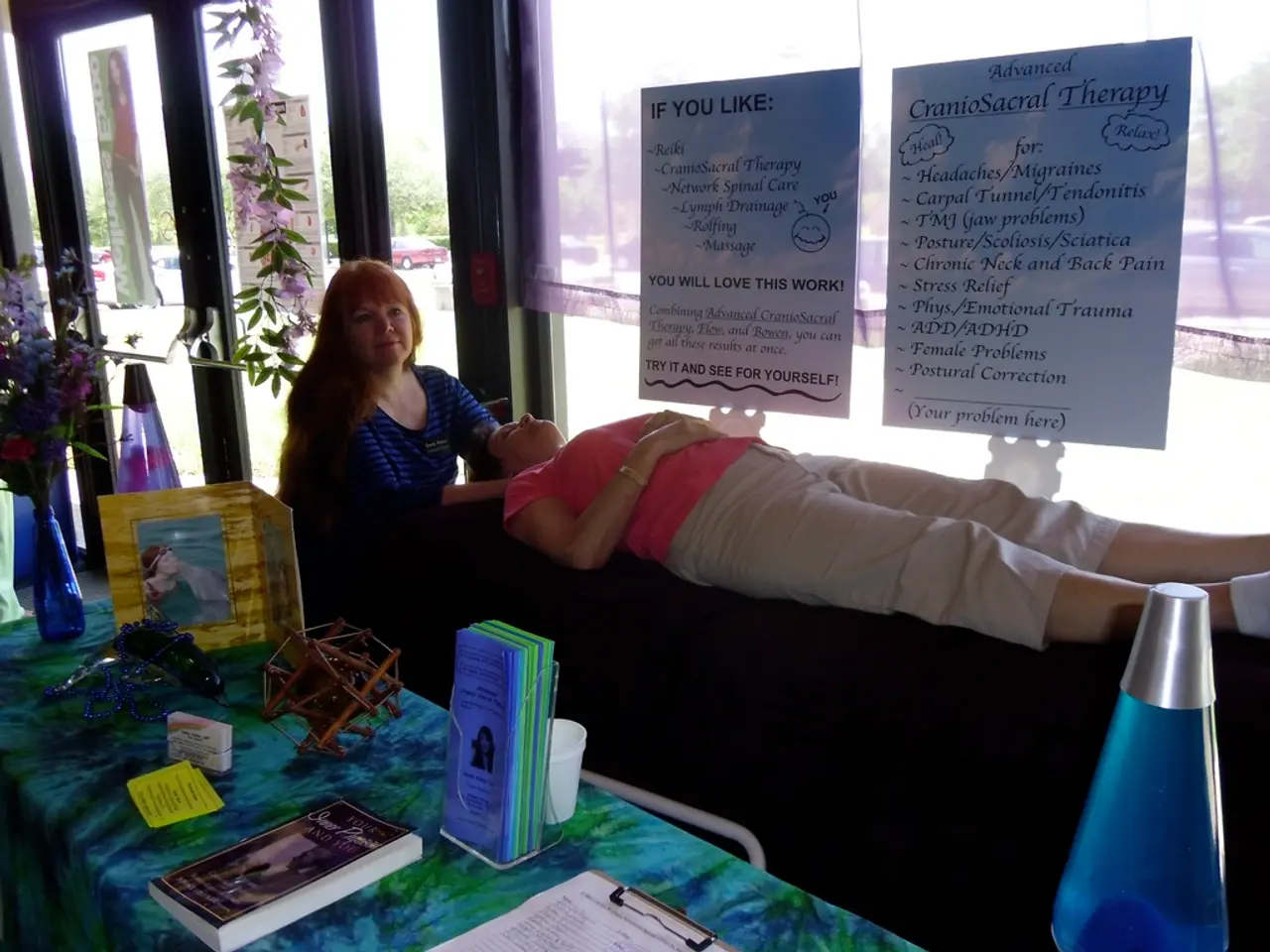Methods for improving wellbeing in the virtual world of the Metaverse
In the ever-evolving digital landscape of the metaverse, wellness is no longer confined to the physical realm. A growing number of individuals are discovering the benefits of incorporating mindfulness practices into their virtual experiences.
Adequate rest, physical fitness, and self-care are essential for optimal well-being, and these principles are being embraced in the metaverse. Mindfulness techniques, such as guided meditations, breathing exercises, and visualization, are being adapted to take advantage of the immersive technologies available in virtual reality (VR) and augmented reality (AR).
One such app, Aura, helps manage stress and anxiety through a variety of mindfulness techniques. Another popular app, Headspace, offers guided meditations, visualization exercises, and sleep sounds to reduce stress and anxiety.
In the metaverse, mindfulness activities can take many forms. Guided meditations, for instance, are often conducted within serene virtual environments such as gardens, forests, or retreat centers. These sessions, led by soothing audio cues, help reduce stress, anxiety, and promote relaxation. Examples of apps that offer such experiences include TRIPP, Maloka, and Nature Treks VR.
Immersive breathing exercises are another popular mindfulness technique in the metaverse. VR/AR platforms guide users through structured breathing techniques, often synchronized with calming visuals and sounds. This practice helps lower cortisol levels, enhances focus, and improves emotional regulation. Apps like Calm and Headspace have VR counterparts or VR-inspired features that make breathing exercises more engaging.
Mindfulness walks and nature simulations are also prevalent in the metaverse. Users can virtually explore relaxing natural environments, such as forests, beaches, or mountains, promoting mental relaxation and reducing depression. Nature Treks VR, for example, places users in calming natural settings to improve mood and mindfulness.
Interactive mindfulness games and experiences are designed to make mindfulness practice more accessible and engaging. These gamified activities, such as virtual puzzles or relaxation challenges, encourage users to practice mindfulness in a playful manner. Apps like XRHealth and PsyTechVR offer interactive mindfulness-based therapy experiences.
Peer and professional support in virtual communities is another crucial aspect of mindfulness in the metaverse. Users can join virtual support groups or connect with mental health professionals within the metaverse. This provides social connection, accountability, and expert-guided mindfulness practice. VR platforms like XRHealth offer access to trained professionals for guided mindfulness sessions and therapy.
Recent research confirms that mindfulness-based programs significantly improve mental well-being, reduce symptoms of anxiety and depression, and are effective in both clinical and non-clinical populations. Immersive VR experiences further enhance these benefits by making mindfulness more engaging and accessible.
By integrating these mindfulness techniques into the metaverse, individuals can experience science-backed wellness benefits in innovative and engaging ways. Whether it's through guided meditations, immersive breathing exercises, mindfulness walks, interactive games, or peer support, the metaverse offers a wealth of opportunities for individuals seeking to improve their mental health and well-being.
Science and technology are merging in the metaverse to offer various mindfulness activities for mental health and well-being. A growing number of apps like Aura, Headspace, TRIPP, Maloka, Nature Treks VR, Calm, XRHealth, and PsyTechVR, are introducing guided meditations, immersive breathing exercises, mindfulness walks, interactive games, and virtual support groups to promote relaxation, reduce stress, and improve focus. The immersive nature of VR and AR not only makes these practices more engaging but also enhances their effectiveness, supported by numerous scientific studies that show mindfulness-based programs significantly improve mental health.
Personal growth and education-and-self-development can also benefit from such experiences in the metaverse, as individuals can access science-backed wellness benefits in innovative ways, fostering their mental health and well-being.




